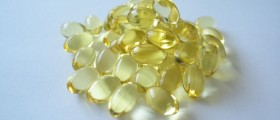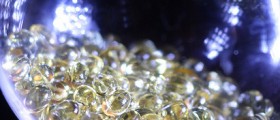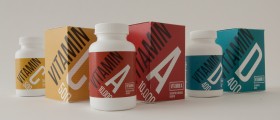
This fat-soluble vitamin is the only vitamin in the human body that can be synthetized when skin is exposed to the sunlight. There are two types of this vitamin: vitamin D2, also known as ergocalciferol, and vitamin D3, known as cholecalciferol. First one is mainly obtained from plants, whereas the second one is synthetized in the human body while exposed to the sunlight. Small part of this vitamin is stored in organs such as liver, bones and kidney, and the biggest part of this vitamin supplies can be found in the intestine, where it helps absorption of calcium from the foods. This is why vitamin D is important for growth and bone structure. The Function of Vitamin D on the Skin
Vitamin D is important for preventing and dealing with skin conditions such as psoriasis. The best way to acquire vitamin D in adequate amounts is to have appropriate exposure to daylight as the sun’s ultraviolet rays affects the unprotected skin and allow it to produce vitamin D.People having dark skin and elderly people have a lower ability to produce vitamin D in the skin, and this is why they have to expose themselves to the sun for a longer period of time. Then again, too much sun can lead to premature aging of the skin, and even skin cancer and therefore, one should stand under the sun no more than 5 to 10 minutes.The Function of Vitamin D in the BodyThe main function of vitamin D is to absorb calcium from intestines and hence keep the normal level of this compound in the body. This promotes strong bones, teeth and nails. It also benefits and helps neurotransmitter functions in the body. Another role of this nutrient is preventing rickets in children and osteoporosis in adults (usually older women). Vitamin D also has antioxidant properties. That means that it can reduce damage done by free radicals, and by doing that, prevent different types of cancer and cardiovascular diseases. It also helps with the treatment of such conditions as overweightness and diabetes. Studies showed that vitamin D deficiency can cause obesity. As well as other vitamins and minerals, vitamin D promotes good health and boosts your immune system. Sources of Vitamin D
As it is mentioned earlier in the article, one of the main sources of vitamin D is sunlight. Nevertheless, there are some foods that are rich in this vitamin. Such foods are: fatty fish, oranges, egg yolks, cereals, yogurt, cheese, green leafy vegetables, etc. You can also obtain this vitamin from multivitamin and vitamin D supplements.

















Your thoughts on this
Loading...